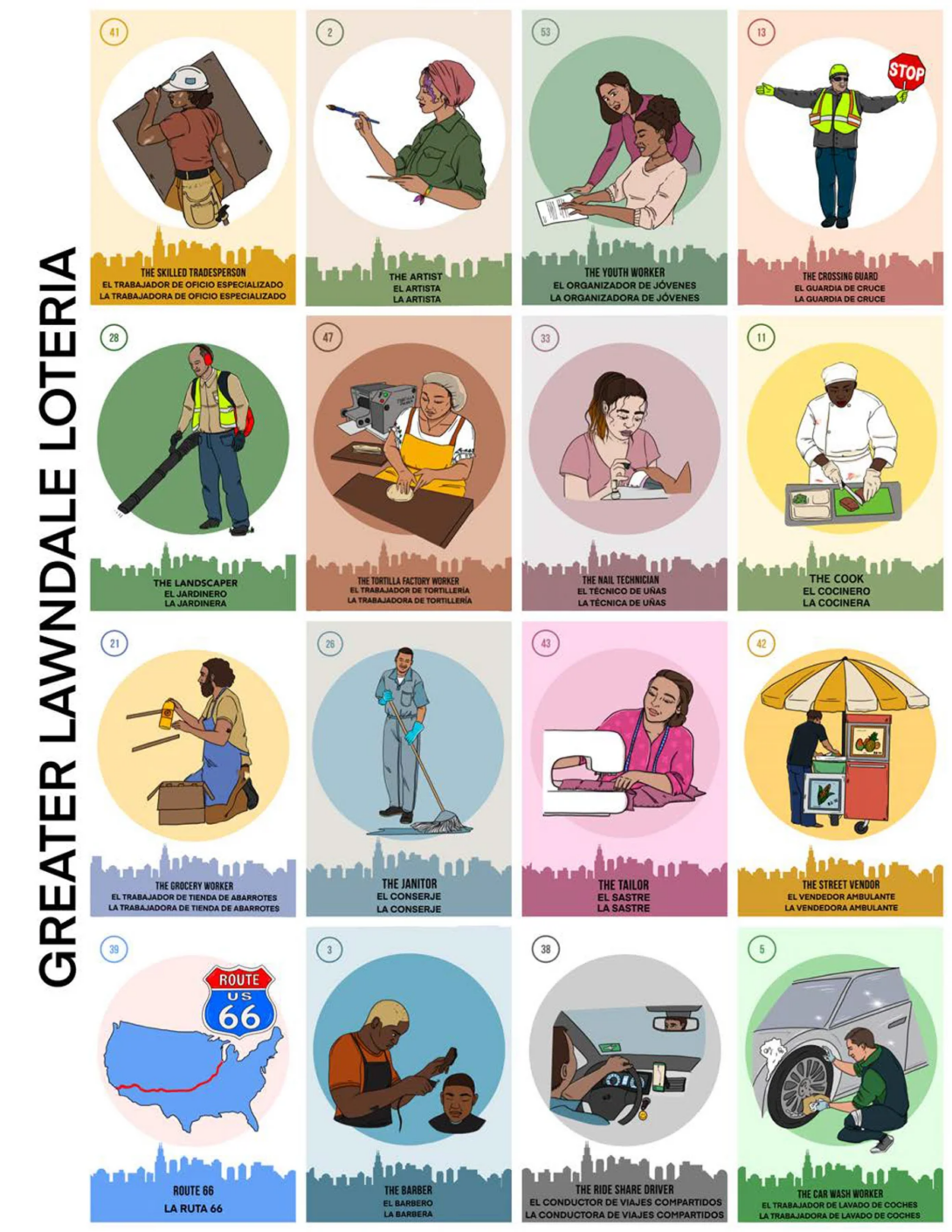SPH researchers are using lotería to emphasize worker health
Loteria

Shared from UIC Today story published April 8, 2025
Lotería is a Mexican game of chance, like bingo but with cards instead of numbered pingpong balls. Traditionally, the cards depict everyday objects or archetypes, like a tree, the moon or a mermaid.
Researchers at the UIC School of Public Health have put a spin on the classic game to share information about work and health with Chicago’s North Lawndale and Little Village communities.
The researchers, at the school’s Center for Healthy Work, used census data and community surveys and interviews to guide the game’s content. Most of the 54 cards show a job in industries heavily represented among Greater Lawndale residents: There’s “the factory worker,” “the nurse” and “the skilled tradesperson,” for example. Each card corresponds to information about that job, its contribution to the community and its health risks.
Dolores Castañeda, a research associate with the Center for Healthy Work, developed the idea for the Greater Lawndale Lotería. Already, the center has handed out 200 sets. (Anyone can download the cards, gameboard and corresponding booklet for free.)
Castañeda said she’s seen people’s perspectives about these jobs change once they play.
“How people visit the situation about precarious jobs and through the play of the lotería, people understand more consciously about how difficult these types of jobs are,” she said.
Some cards depict the history of labor organizing, such as “the union” and “the worker center” and correspond to information about local resources for workers, like the Chicago Community and Workers’ Rights organization in Little Village.
“There are cards that reflect the precarious jobs that some people in the Greater Lawndale area are engaged in and other cards that highlight neighborhood landmarks which provide orientation and history,” said Sylvia Gonzalez, a project manager in the School of Public Health.
“For example, one of the cards highlights the history of Washburn Technical Trade School, which was closed in the 1960s, likely due to the desegregation of the predominantly white student body. That’s one example of how education and work, both social determinants of health, are interconnected.”
The redesigned lotería came out of the center’s Greater Lawndale Healthy Work project, which brings together North Lawndale and Little Village residents, community organizations, worker centers, and UIC faculty, staff and students to understand the effects of work on health and to promote worker health. The project is funded by the Centers for Disease Control and Prevention and the National Institute for Occupational Safety and Health.
Gonzalez said the game provides a unique opportunity to highlight how work affects the overall health of residents in Greater Lawndale.
“Work is a social determinant of health. It affects where we live, eat, play and work,” Gonzalez said.
The Greater Lawndale Lotería is part of a current exhibit at the Centers for Disease Control Museum in Atlanta, Georgia. The “Health is a Human Right: Achieving Health Equity” showcases efforts in communities across the U.S. to advance health equity.
In the meantime, the Greater Lawndale Healthy Work researchers plan to publish their complete findings about the game’s influence later this year.
Gonzalez said the game has had an impact.
“I think there has been more awareness building. We’ve heard youth saying that they think more critically about the work that their parents are engaged in,” Gonzalez said. “We do see the impact. The preliminary findings reflect that there’s been a shift in knowledge, attitudes and beliefs. So that speaks for itself.”